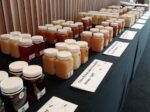Government action needed on farmer feedback
New Zealand: DairyNZ recommends the Government makes significant changes to its emissions pricing proposal – taking on board the feedback of farmers and their representatives. In its submission, now available online, DairyNZ stands by the He Waka Eke Noa recommendations developed by the primary sector, in partnership with Government officials. The industry-good organisation does not accept the Government’s pricing proposal, Te tatai utu o nga tukunga ahuwhenua, which DairyNZ chair Jim van der Poel says undermines the balance and equity He Waka Eke Noa aims to achieve. “It is unacceptable for farmers, who have made their thoughts very clear on this issue. The Government needs to take this feedback on board,” says Mr van der Poel. “DairyNZ recommends the Government adopts the He Waka Eke Noa recommendations, which represent more than two years of collaboration, including extensive negotiation with Government partners. The Government must ensure any agricultural pricing is fair and equitable for farmers. “The sector could not support any other solution.” Over the past six weeks of Government consultation, DairyNZ held 14 in-person events and 10 webinars, engaging with over 1000 dairy farmers. “Farmers expressed deep concern about the impacts of the Government’s proposal on the sector and New Zealand’s economy. Areas of concern were significant and wide-ranging, including price-setting, collectives, sequestration, reward and recognition for on-farm planting, and governance,” says Mr van der Poel. “The Government’s response to He Waka Eke Noa has missed the mark on many of these criteria. It places a financial burden on the farming community and removes the ability for agriculture to have a say in its own sustainable future.” Of the farmers DairyNZ engaged with, 99 percent think more on-farm planting should be recognised. Ninety-five percent see governance representation as important or extremely important, while 94 percent believe additional criteria should […]










